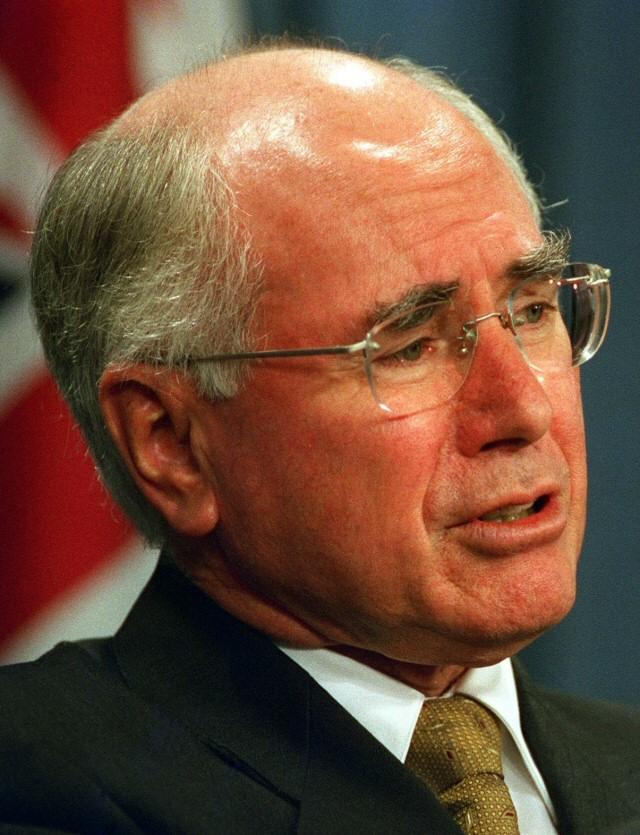Naracoorte Hall of Fame
Former Australian Prime Minister
John Howard, the 25th Prime Minister of Australia, is widely recognized as one of the most influential and enduring figures in Australian political history. Serving in office from 1996 to 2007, Howard's leadership and conservative policies left an indelible mark on the nation's political landscape. Let us delve into the life, career, achievements, and lasting legacy of this remarkable statesman.
Early Life and Education
Born on July 26, 1939, in Sydney, John Winston Howard grew up in a middle-class family and attended Canterbury Boys' High School. From an early age, Howard exhibited a keen interest in politics and public affairs. His passion for law led him to pursue a degree in law at the University of Sydney, where he actively participated in student politics, foreshadowing his future in public service.
Political Ascendancy
Howard's political career took off in 1974 when he was elected to the House of Representatives as the Member for Bennelong. Over the years, he held various ministerial positions in the government, honing his skills as a statesman and gaining experience in key policy areas. In 1977, he assumed the role of Treasurer of Australia, a position he held until the Liberal Party lost power in 1983.
Leadership of the Liberal Party
In 1995, John Howard became the leader of the Liberal Party, taking charge of a party that had experienced several leadership changes and electoral defeats. Recognized for his astute political acumen, Howard led the Liberal Party to victory in the 1996 federal election, ending 13 years of Labor Party rule. His success in revitalizing the party and securing a mandate from the Australian people marked the beginning of his transformative tenure as Prime Minister.
Policy Reforms and Economic Stewardship
One of Howard's defining characteristics as Prime Minister was his commitment to economic stability and growth. His government implemented a series of economic reforms that laid the foundation for Australia's economic prosperity. Notably, Howard introduced the Goods and Services Tax (GST), a significant taxation reform aimed at streamlining the tax system and providing revenue for essential public services. His economic policies, combined with prudent fiscal management, resulted in sustained economic growth, low unemployment rates, and increased international competitiveness.
Strengthening International Alliances
John Howard was a staunch advocate for Australia's engagement on the global stage. During his tenure, he played a pivotal role in strengthening Australia's relationship with its international allies, most notably the United States. In the aftermath of the September 11, 2001, terrorist attacks, Howard invoked the ANZUS Treaty, reaffirming Australia's commitment to supporting the United States in the War on Terror. This commitment led to Australia's involvement in the invasion of Iraq in 2003, a decision that garnered both support and criticism. Nevertheless, Howard's steadfast leadership in foreign affairs cemented Australia's position as a trusted partner on the world stage.
Social and Cultural Policies
Howard's conservative values and traditionalist stance on social issues shaped his policy agenda. He championed initiatives promoting family values, national identity, and a strong sense of community. Notably, his government implemented strict gun control measures in response to the 1996 Port Arthur massacre, which significantly reduced firearm-related deaths in Australia. However, his government's policies on indigenous affairs and asylum seekers faced scrutiny and criticism from various quarters, highlighting the complexities and challenges of governing a diverse nation.
Legacy and Continuing Influence
John Howard's legacy as Prime Minister endures, with his impact on Australian politics and society still felt to this day. His unwavering leadership, policy reforms, and economic stewardship laid the groundwork for Australia's prosperous years ahead. The resilience and strength he displayed during times of crisis, such as the response to the September 11 attacks, exemplified his unwavering commitment to national security and the protection of Australian interests. Despite criticisms and disagreements, Howard remains highly regarded for his dedication to public service and his lasting contributions to the nation.
Post-Political Life
Following his defeat in the 2007 federal election, Howard gracefully stepped down as the leader of the Liberal Party and retired from politics. However, his retirement did not mark the end of his public engagement. Howard has remained active in public life, participating in speaking engagements, writing books, and serving on various international advisory boards. His expertise and insights continue to be sought after, and he remains a respected voice in the Australian political sphere.
Conclusion
John Howard's tenure as Prime Minister of Australia was marked by resolute leadership, conservative policies, and enduring achievements. From economic reforms to foreign policy decisions, his influence on Australia's trajectory cannot be overstated. Regardless of one's political persuasion, John Howard's legacy as a transformative figure in Australian politics is unquestionable, and his contributions will continue to shape the nation for years to come.
Simply the Greatest Australian Prime Minister of all time.
John Howard was an inspiration, a true leader, a battler and an absolute gentleman.
If you would like to ad a local personality that you know or an Aussie who inspires you to the Naracoorte Hall of Fame, do Login and create a Hall of Fame article..




















